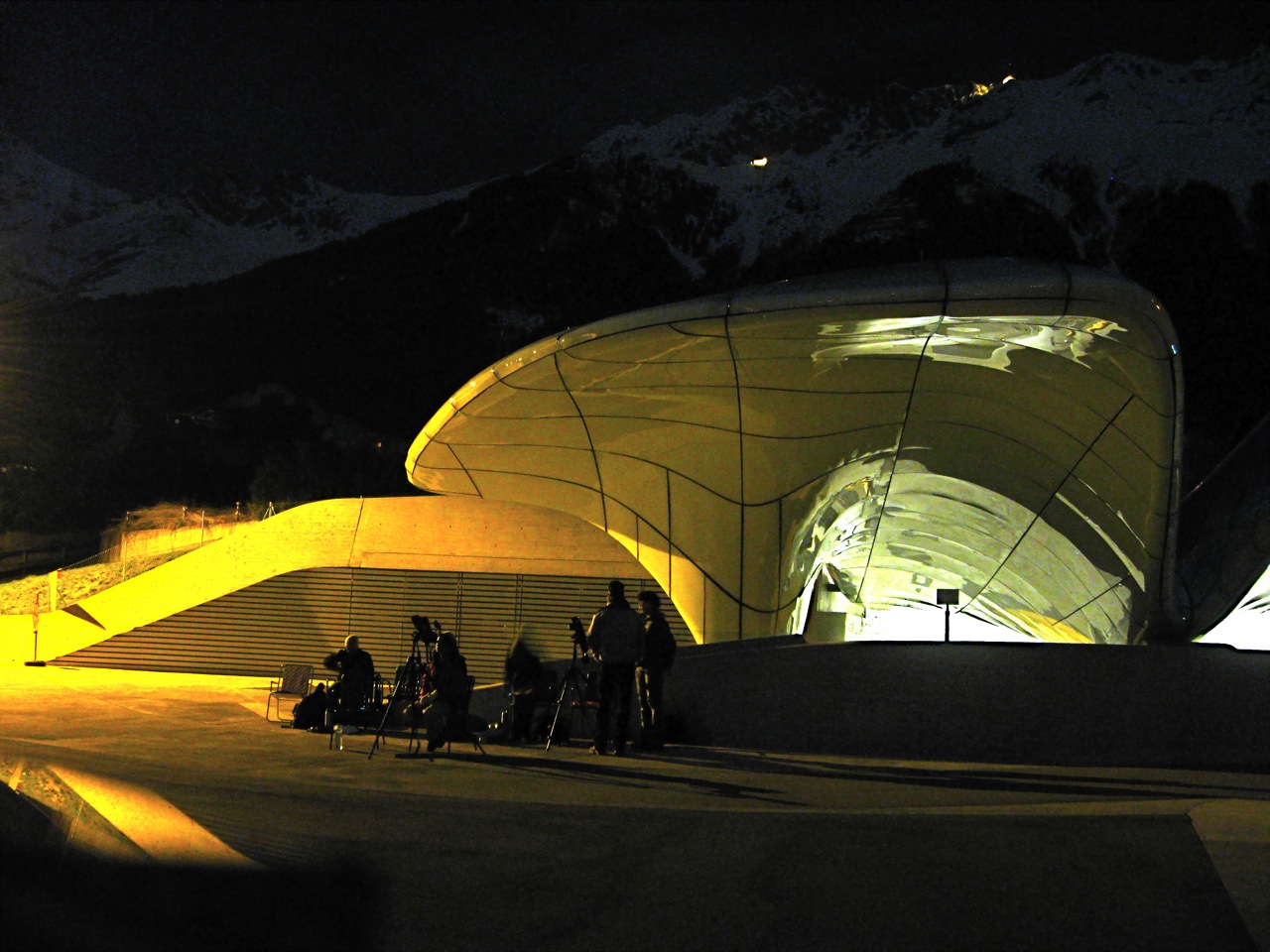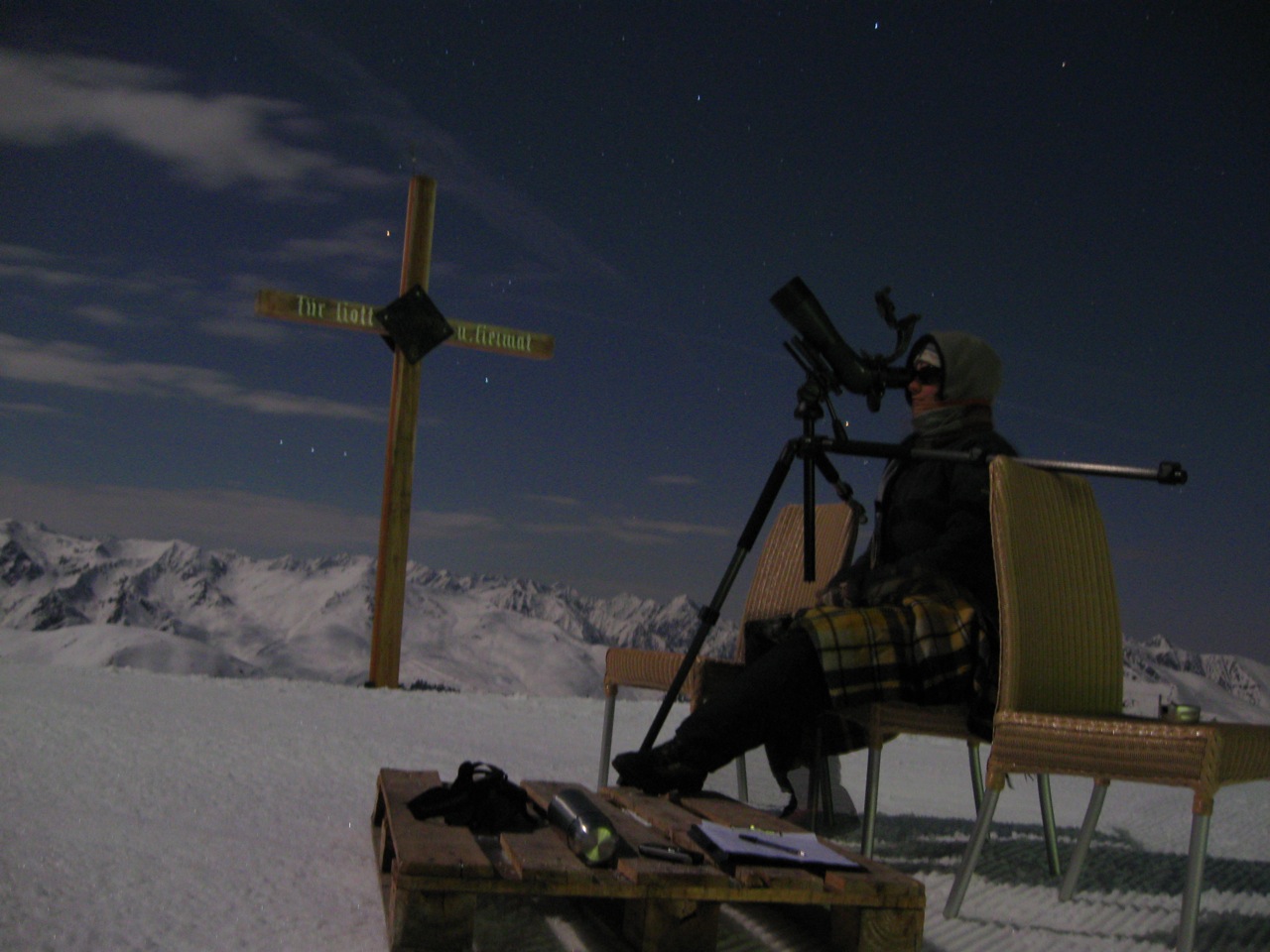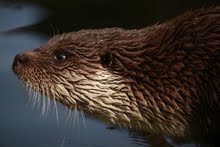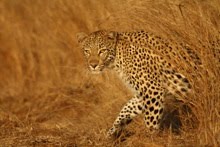The spring migration is in full swing at the moment and it seems lots of bird species migrate at night. Now, this is fairly common knowledge, but what I did not realize is that you can actually see this while it is going on. This week, I have been helping out on a research project investigating migration patters of birds in the Austrian Alps, with this current phase being in the mountains of central Tirol.
So here is what we do: stare at the moon all night and see if anything flies by. Good idea, huh?
Well, I had not thought of it - I just did not expect there to be that many birds flying by your average mountain side for it to be worthwhile sitting out on the snow at 2500m for hours on end, staring down a spotting scope (as much as I do like doing that!). Anyhow, it seems that it can be fairly productive and last night over the course of a few hours we saw almost 40birds fly directly between us and the moon.

Our first go was on Sunday evening (5 April 09), where the participants got to grips with the methodology. The setting, at the Hungerburgbahn overlooking Innsbruck, was stunning and before long, we started to see birds flying past (they looked like pipits to me, but that is just a complete thumb suck).
Monday night, Silvia and I headed up to Axamer Lizum's Hoadl House (2400m asl), where we spent almost the whole night looking out for birds. It was cold. Very cold. But the bright moonlight draping the mountains was spectacular. Interestingly (and disappointing) was that we only saw two birds the whole night.
But the next morning we relished in the streaming spring sunlight and picked up a few of the really cool high-alpine species (4 white-winged snowfinch, a singing alpine accentor, displaying water pipits, and a flock of alpine choughs).

Last night we were up at Seegrube (North Park Ski Arena, overlooking Innsbruck). The first bird I saw as I walked out of the cable-car house was an alpine accentor right in front of me - this was going to be a good night! [for those of you who have not figured this out yet, I looove alpine accentors, they have got to be one of the coolest birds of the high alps, but I will leave my gushing for another time...]. We spent the late afternoon digiscoping accentors and choughs, and enjoying the stillnes of the high mountains, for everyone had left by about 5:30pm, so we had the whole place to ourselves. We started our survey at 9:20pm and carried on through to about 2am, but although it was not as cold as up at Axamer Lizum, we really felt the cold (I suppose lack of sleep will do that to you). But we were compensated by strings of birds flying by, almost all of which seemed to be flying down the Inn valley and my personal guess is that they we were seeing them flying at about 3000m asl. The birds we saw were mostly smaller passerine-sized birds, but I did see a group of 4 ducks fling close together - the quick wingbeats and size makes me think they were Teal (although I suppose they could have been Garganey, but that would be much less likely in the Alps).
What fascinates me most about this whole project is the sheer numbers of birds that must be migrating. We are looking at the moon through a telescope (25x magnification), and the moon occupies a relatively tiny portion of the night sky, so the chance that the flight path of a little bird taking it directly between us and the moon seem rather slight. Given the [relatively] large number of birds we saw last night and on Sunday at Hungerburg, I can only imagine that there really are huge numbers of birds migrating through this area - something that had not really occured to me. Certainly, the number of birds that I am seeing in my everyday life (and birding) in Tirol did not really indicate to me that the migration was in full swing. I suppose what is happening is that a good number of the migrant birds I am seeing every day are continuing on their journeys at night, and are replaced by other for the next day's shift. Either that or, the migrant we were seing at night are hopping over the Alps in one night without a lay-over in the Innsbruck area...
Insight anyone?
Happy birding
Dale










.jpg)








.jpg)



2 comments:
WOW...this should be pretty exciting and painstaking at the same time. Sitting all night looking in the cold and gazing at the moonlit skies should be taking bird watching to the extreme. WOW. I admire you folks...Thomas
it is surprisingly fun
Post a Comment